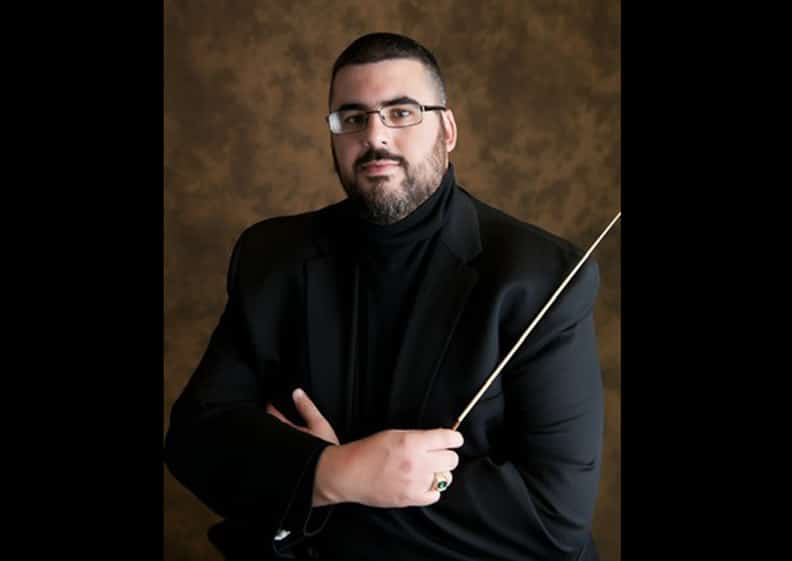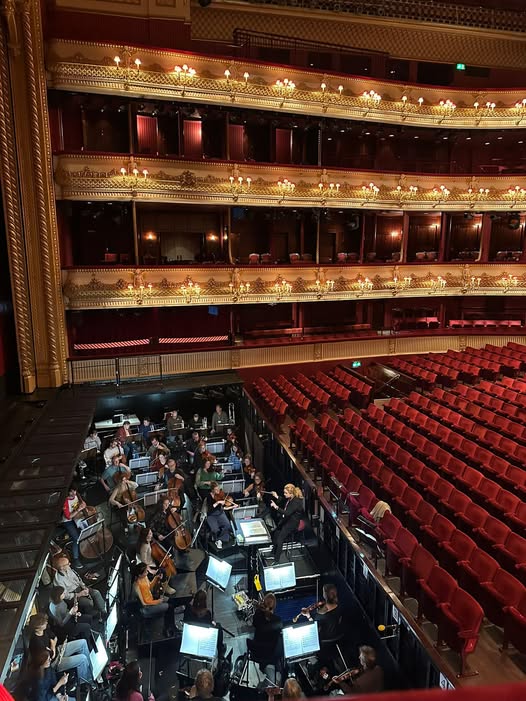The land where classical concerts are all sold out
mainThe national broadcaster YLE has come up with some record statistics for classical concertgoing in Finland.
In 2015 The Finnish Radio SO under Hannu Lintu – often programming avant-garde and contemporary music – sold 97% of all seats at the new (1704-seat) Helsinki Music Centre.
In the same hall, the Helsinki Philharmonic Orchestra sold over 90 percent.
The Turku Philharmonic with Leif Segerstam hit an all-time high of 91% (1000 seats).
Jyväskylä Sinfonia with young conductor Ville Matvejeff, 29, sold 100 percent of all concert seats. Their Christmas concert was sold out by the end of June.
Lintu observes that in some smaller towns, one-third of the population turns out for a concert.
What the fff are the Finns doing right?






Bugger all else to do in rural Finland?
That needs a hyphen, given that it replaces nothing. Like this: bugger-all else … .
[Shows himself out.]
It probably helps to have an education system that emphasizes music training. Not something you’ll find in many other developed countries these days.
An education system by which a Finn learns to speak English (2nd language) better than the average American.
No aspiring official who suggests such a system would get elected in the USA. It would involve much higher taxes and would also involve countless cries of ‘socialism’.
Per student K-12 spending in the US is among the highest in the world, so it’s scarcely that schools are starved of funds by knuckle-dragging electorate. If despite this we lack adequate music education in our schools (which we should have), maybe you should ask instead where all that money is going.
Well, some schools are starved of funds and other schools are swimming in money. As to where some of that money is going, the Douglas Country, Colorado school district just “spent more than $12,000 on 10 Bushmaster “long guns” for its security team…” (today’s Guardian)
Please note that English language is the 3rd language at school, compulsory Swedish language is the second for all Finnish speaking students and Finnish language is the second, compulsory, for Swedish speaking students.
Not totally true. You typically have to take a compulsory second language in 2nd or 3rd grade. For Finnish speaking people it is typically English or Swedish (but can also be another language like Russian or French). For the Swedish speaking minority I think Finnish is still compulsory from 3rd grade on. At some point you also have to study the second official language (for Finnish speaking: Swedish; for Swedish speaking: Finnish).
All up, though, it sounds pretty civilized to me!! Scandinavian countries seem to get the language thing altogether.
They also have so many great LIVING composers: Lindberg, Salonen, Saariaho, Rautavaara, Aho…
…many of whom probably benefited from the above mentioned music education received in Finland.
The Finns do place music at the centre of their excellent education system, classical music has none of the elitist overtones it has in the UK and there is indeed bugger all else to do in the winter other than adult ed. which thrives: conversational Hebrew was available at one centre I visited.
“classical music has none of the elitist overtones it has in the UK”
Or, perhaps looking at it another way, none of the anti-elitist attitudes?
There are both elitist and anti-elitist attitudes around classical music also in Finland. Having lived in both Sweden and Finland, I find Sweden much less elitist. The connotations might be other than in other countries but they are still there and create challenges.
E.g. the new populist party (second largest in last national election, if I remember correctly) has a very anti-elitist cultural agenda with which they fish votes.
Wherever you live, take what you have and make a success of it.
Finland consistently places as the highest or near-highest in education league tables. With music a part of that education, the interest is fostered and nurtured. If ever any government needed proof that there is a link between music education and music survival, not to mention the level of civilisation in Finland, they need look no further.
And of course there is little else to do…you can;t cross-country ski 24/7, and too many saunas may dry your skin.
The Czech Philharmonic, in my experience the past two years, has been at or near capacity for every concert I’ve seen them do. Granted, it’s only an 1,100 seat hall.
They also enjoy a very distinct ethnicity, with a huge majority of finns (95%), making it much easier to find common ground in terms of education and interests. That’s why their system is so difficult to apply in more melting-pot type of societies.
Thank you, this is an extremely important point. Comparisons of education systems across nations and cultures are rarely apples-to-apples.
First of all, not totally correct statistics. Second, bad excuse. I am a Finn working with building audiences for orchestras, opera houses and venues in Denmark, Germany, Netherlands, Sweden, Switzerland, UK. The problem isn’t the market (e.g. multi ethnicity) but the marketing.
As i’m sure you’ve noticed, any time a success story about fine arts in northern Europe pops up, us Anglo-Americans (even if we don’t admit it publicly) assume all northern countries are ‘bleached white’ and thus can do all these wonderful things. For my part, I have noticed a large contingent of Finns coming to Britain and the US as leading conductors and composers. I am intrigued.
Yes, the easy way out to explain the success of others is always to blame the circumstances.
What comes to conductors, composers etc: A great public school system (both music schools and “normal” schools), the conductors training at the Sibelius-Academy, a double number of orchestras per capita in relationship to e.g. Germany all help. But as Esa-Pekka Salonen once said: “People are always trying to explain the Finnish success with macro circumstances. The work of the individual is seldom taken in as a factor”.
Combining these two factors (the macro and the individual), I would suggest that the macro factors were built by individuals with extremely strong will and long term vision. We can blame (or thank) the Sibelius-Academy for a superior conductors class. But among others Maestro Jorma Panula fought for decades to get the funding for it and to maintain it. It was a team of perhaps 5 people that made it work.
Yes, this is an important point that helps explain a point that arose earlier.
I live in a Virginia suburb just outside Washington, DC. We have students from well over 100 countries, many of whom speak no English and instead speak any one of scores of languages.
We spend a great deal of money-per-pupil on average, but a great amount of that goes to accommodating this population of non-native English speakers.
With Finland’s more homogeneous population, these expenses are unnecessary, and money can find its way to arts education and the like.
Unique in the world: when there is a classical music concert in Andorra, the ENTIRE population turns-up.
I understand from a Finn that every Primary School teacher has to be proficient at the piano and there is an upright piano in every classroom to aid teaching. Sow and reap.
I remember when I was a child growing up in the USA during the 1960s. The school teachers had pianos in their rooms and played quite a bit and the children sang many songs. Not sure if this is still the norm.
It used to be that way but not any more. Primary school music education is suffering here in Finland just like in most countries.
There has been a tradition of strong influence of music in Finland, with many fine musicians and conductors reigning supreme to this day. Believe it or not, one orchestra in Finland, the Jyväskylä Symphony Orchestra, is taking part in a consortium of orchestras commissioning a new piano concerto by Peter Schickele in the form of his alter ego, PDQ Bach. They will present the European premiere during the 2017-18 season. Kudos to the Finns all around!
So what is he secret of the Finnish fff in audiences?
Finnish Radio SO, Helsinki Phil and Jyväskylä Sinfonia all have very strong subscription systems.
Helsinki Phil has had great audience numbers since the 90’s. I have studied the system they built and it is powerful.
I was CEO of the Finnish RSO 15 years ago and we didn’t have so many subscribers and therefore audience problems every second week. My follower Tuula Sarotie was very smart and used the new Music Hall to establish a solid subscription system.
Jyväskylä has the blessing of a small theater that they can’t use too often (limited supply) and many subscribers.
It’s not many years ago Turku Philharmonic had really serious problems so congratulations on fantastic work!
There are of course also other very important factors behind this success, but without smart long term strategy and a solid subscription base all these organisations would have problems. No mystery.